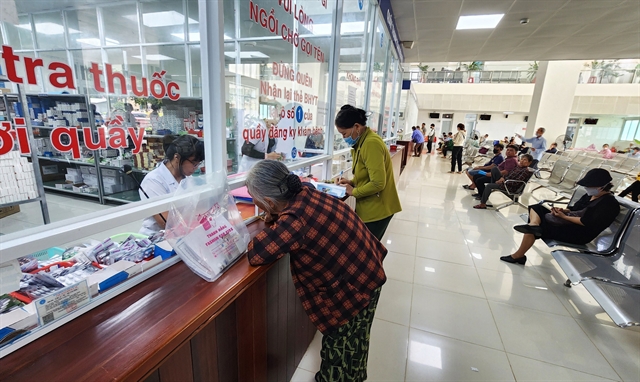 Opinion
Opinion


|
| Illustrative Image |
Trần Quốc Bảo, head of the Non-communicable Diseases Control Division under the Ministry of Health's General Department of Preventive Medicine, talks to local media on the health risks of eating too much salt.
Can you give us an overview of Vietnamese salt consumption and some common misconceptions?
It could be said that Vietnamese people have too much sodium in their diet. A national survey conducted in 2015 showed an average Vietnamese adult consumes about 9.4g of sodium a day, nearly twice the recommended amount which is below 5g a day according to the World Health Organization (WHO).
Contrary to other developed countries where prepared food is common, Vietnamese people’s excessive intake of sodium can be attributed to the habits of heavy seasoning and dipping sauces.
It should be clear that when salt intake is mentioned, everything that contains a high level of sodium – from table salt to soup powder, monosodium glutamate (MSG), fish sauce, dipping sauces, salted fermented vegetables, braised meat, or pre-packaged food – are all included.
Whether a food tastes ‘salty’ or not depends on each individual, but while most Vietnamese take in way too much salt, not many consider themselves salty food lovers.
Another misconception is that many think normal people can eat as much salt as they want and only ill people need to watch their salt intake, which is quite dangerous thinking as too much salt constitutes real harm to anyone’s health.
People also worry that reducing salt intake would lead to a salt deficit, but in reality, even without sprinkling in more seasoning or dipping sauces, cooked dishes themselves already provide enough salt for the body.
What are the health implications of excessive salt intake?
Salt is critical to the human body but too much of it is dangerous. Consuming an excessive amount of salt is a major risk factor for conditions such as high blood pressure, stroke, heart attack and many other cardiovascular diseases.
Excess salt also elevates the risk of stomach cancer, kidney failure, osteoporosis and many other disorders.
What has the General Department of Preventive Medicine done to improve this situation?
Việt Nam set the target of reducing 30 per cent of the average adult’s daily intake, from 9.4g to below 7g, with the message of cutting half daily salt intake to lessen the risks of heart conditions and other non-communicable diseases.
Policy-wise, the Ministry of Health in 2018 has launched a national awareness plan on cutting salt in people’s diet.
Health authorities are working with local governments and social organisations to conduct media campaigns and programmes on social media or in the community across the country, integrating messages of lowering salt intake with encouraging physical exercises and movements and urging people to have frequent health check-ups, especially screenings for heart diseases, to get treatment if necessary.
The General Department of Preventive Medicine is also in the process of crafting guidelines on salt reduction in the diet for different groups, such as the general population, for children or students, households, and patients.
In addition, the health sector is working with concerned agencies to review and propose to develop policies and regulations on reducing salt consumption and implementing salt reduction intervention programmes in schools and the community, in tandem with the management and treatment of non-communicable diseases at commune-level health stations.
Other than attempts to raise public awareness, what other plans does the department have in place to give the people more diverse choices of food with low-salt content?
The health sector is working to make programmes and policies to encourage food manufacturers and traders to contribute more to the efforts in helping people eat less salt by co-operating and implementing measures such as reducing salt content in pre-packaged food products and researching and applying science-technology solutions to produce low sodium salt or replace sodium altogether.
In addition, ready-to-eat food establishments and restaurants can help improve the situation by introducing and making lower sodium dishes and meals.
We are working to review and propose policies and regulations on the labelling of nutritional information on pre-packaged food products, including the declaration of the salt content and recommend daily salt intake to give consumers a chance to choose healthier lower-salt food. — VNS




